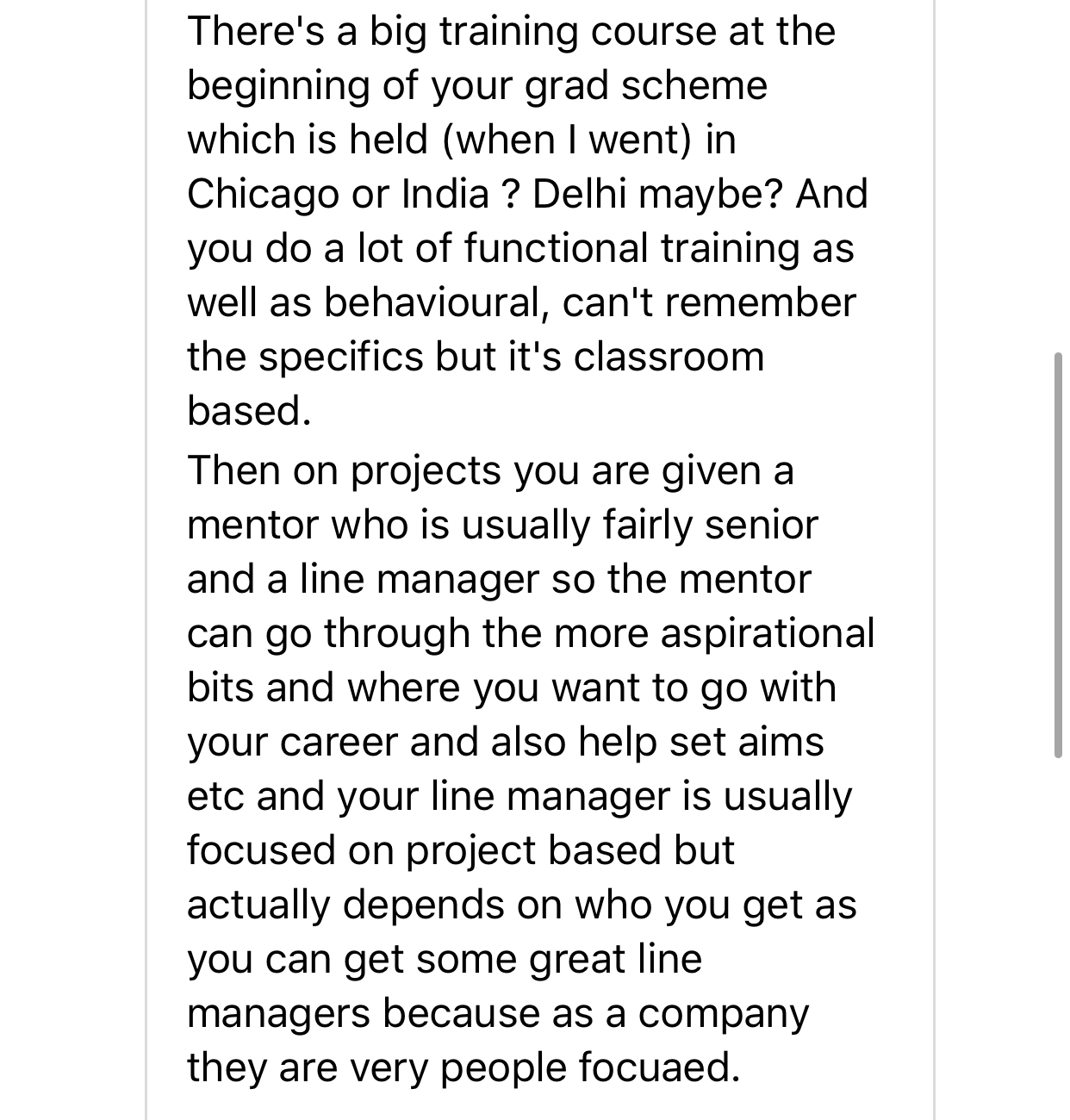How to prioritise your professional development today, when your employer clearly doesn't
The low-down on startups offering a lack of professional development and how to take the matter into your own hands.
In today’s newsletter an important but often overlooked topic: the lack of professional development provided at early stage businesses.
Professional development is any combination of training, support, skills-development and methods to foster greater self-awareness in the workplace. Often known as CPD (Continuous Professional Development).
We should always be improving if we want to reach our potential in life and our workplaces should provide fertile ground from which to do so. People with the most developed strengths and skills receive above average returns and rewards — it’s always in our best interest to expand what we are capable of.
The Ask is on a mission to empower startup talent to take their personal and professional development into their own hands — with content, coaching and community.
If you’re reading this newsletter you are likely already taking this topic seriously and investing in yourself.
What kind of professional development support do you get?
I don’t know about you but I’ve never been a beneficiary of a generous learning & development budget or extensive training.
As someone who has only worked in startups and Founder-led companies (the biggest company I’ve ever worked at had 25 employees) this is not something I’ve had much access to.
Some of the blunders I’ve experienced in organisations I’ve worked for include:
Filling out a 3 page Quarterly Review form and in the meeting the manager admitting they hadn’t read it and just wanted to ‘chill’ with me in the meeting.
Being ‘trained’ on the basics of my role after two years working there. The excuse? They assumed I knew it all when I joined.
As Head of Talent I suggested working 1-1 with all employees to develop a career plan with them. The Founder rejected the proposal saying that wasn’t the companies role to support in. (Yep, the staff turnover was very high).
Perhaps these scenarios sound familiar to you, or perhaps you’ve been privy to more advanced support.
It’s not uncommon for larger, more established organisations to offer everything from training, career planning, self-assessment tools and vocational support. I asked a client who started her career at Accenture what she received upon joining:
But if you’re in the startup world you'll be granted no such luxuries.
There is a reason so many startup job descriptions list an ability to ‘roll up your sleeves, get stuff done and be proactive’ — you will be doing so many different things not necessarily on your ‘ideal’ job description. And for many, that’s part of the appeal. You get exposure to many parts of the business and variety.
This makes training challenging however as the range of tasks is too broad. Startups prefer ‘on the job learning’ where employees learn the ropes by doing. Makes sense — most people learn better when completing a process in real time rather than simply digesting the theory in a classroom setting.
But there still remains scope to do more… We shouldn’t let companies off the hook so easily .
This issue is compounded by pandemic factor — as so many employees are working remotely they are receiving far less of the informal support they might have done in an office setting.
We risk huge swathes of employees receiving nowhere near the support they need to reach their professional potential if we are not deliberate about this.
This research from Microsoft revealed that younger generations are more worried about missing career opportunities when working from home: 35% of under 35’s feel this way compared to 14% of those aged 55 and over. (Thank you to subscriber Rebecca White for sending these stats!)
Let’s dig into this further.
Common reasons startups don’t offer much professional development support
— Lack of time: In tech companies, when getting a new product out to market they are in a race against time to prove market traction and acquire customers before funding runs out. Investment rounds are based on timescales to get ‘product market fit’. In the early days product development, sales and customer support take precedent and other activities (like your development) can wait until things slow down a bit.
(NB: They can take years to slow down).
— Lack of money: Even if product market fit has been reached, most early stage companies have less customers and turn over less money overall. They have less to reinvest back into team development. Left over cash tends to cover business critical expenses or whatever can be tangibly shown to grow the bottom line.
— Lack of interest: With less people working in the business overall, there may not be a ‘champion’ for learning and development let alone a HR department. Many companies are either unaware or uninterested in the idea of developing their employees.
— Lack of expertise: You may be the most experienced in your field with not enough managerial layers of people above to ‘train’ you. This is the especially the case when you join as an experienced hire or the only hire in your function e.g only the only marketing person. No one else knows what you don’t yet know as they don’t even know what you know.
— Lack of certainty: When things change all the time as they will in startups, there is no one size fits all manual to give staff. The status quo changes so frequently and so training could quickly become moot if the company direction or your role changes drastically.
Right.
What can you do about all this?
If you’re reading and nodding along you may think this is the way of the land and you have little control over it. But let’s think again.
How to empower yourself with professional development when your employer won’t
i) Get personal 1-1 coaching.
Many assume you get coaching for a life transition. But it can also be a great investment to develop further within your role. Coaching in the workplace might focus on soft skills like negotiation, communication or building empathy, overcoming blindspots or building confidence and boundaries.
I’ve helped a number of client secure promotions, pay rises and take on more management responsibility through sessions together. I’m taking 1-1 bookings from March if you want to inquire, the discovery call is free.
You can either pay for coaching yourself or check if your company could pay for you. If they are invested in your professional development and offer no alternatives in-house this a common route many clients go for.
ii) Get a mentor.
A mentor is different from a coach as they are someone with the same (or similar) professional experience to you but some steps ahead. Their role is to help you learn and develop your professional skillset. Whilst a coach may work with you for a intense period over a few weeks or months, a mentor tends to be more sporadic and longer term.
You can also pay for a mentors or you can ask someone to help you for free. The latter of which requires some persuasion and relationship building to begin with. Perhaps you seek out the mentor independently or ask your employer if someone in the business can mentor you formally.
iii) Create a career development plan
Craft a vision of where you want to go long term. Try this post if you need some inspiration here. Then map out what you will need to develop further in order to make this a reality, putting in place some goals with timelines.
Then ask yourself:
— what work projects could you take on to give you this skillset
— what side projects might you work on
— what will require in-depth learning (something either your or your employer might pay for)
iv) Seek out feedback
Perhaps you’re unsure what ‘developing professionally’ means for you specifically. You may want to improve in networking or coding in Python but aren’t sure where to start.
In this instance try asking your manager and peers for feedback:
— What are you great at (to identify the strengths you should continue to develop)
— What are your areas for development (to identify areas you may seek support in)
— What other roles or projects they could see you being good at (to identify under-utilised strengths)
I’ve written here on how to identify your skills and your strengths.
v) Ask your employer
Whilst the path of least resistance is to do nothing, your employer’s intent might be there to offer professional development support even if they haven’t already. Speak to them about what else they can provide and bring some colleagues in to the conversation for mutual support.
PS each of these suggestions could be a newsletter post of its own, so if you read something and think ‘I need to know more about this one’ — get in touch.
There you have it; how to prioritise your professional development today, when your employer clearly doesn't.
I always love hearing from you so let me know what you’ll be taking away to implement in your own professional development plans.






